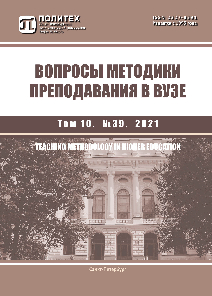Creating the Translator’s Linguistic Identity through Written Translation Training
The hermeneutic framework of the paper draws upon the author’s translation space concept unraveling the essence of the synergetic translation model as a culture-oriented and cognitive one. The paper focuses on the linguodidactic interpretation of the model which does not merely represent some theoretical and abstract construct but delivers a relevant methodological framework for designing written translation training courses. The cognitive, methodological, and synergetic methods of linguistic nature are utilized in the paper. The research provides a stage-by-stage analysis of the translation space concept contributing to the formation of the translator’s professional vision of the world and harmonious translation-oriented thinking. The first stages involve putting under scrutiny the explicit text content while the latter ones imply the extraction of implicit meanings. Heterogeneous implications become synergetic at the final stage envisaging the emergence of new target culture-oriented meanings that create the harmony of the target text. Perceived as a step in enhancing the professional translator’s competence, each stage eventually contributes to the formation of the translator’s linguistic identify.



